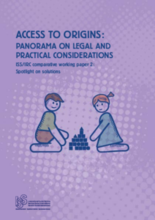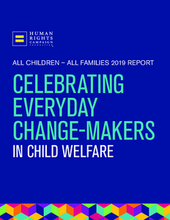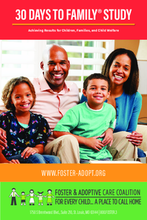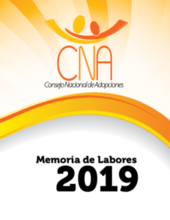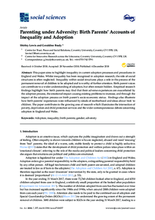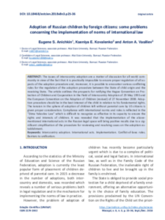Displaying 211 - 220 of 631
This paper is aimed at supporting the professionals who accompany adoptees and their families in the process of searching for one's origins, and the various authorities with the competency to make decisions on this matter.
This report highlights more than 70 child welfare agencies across the United States that partnered with the Human Rights Campaign Foundation’s All Children - All Families project to improve the services they provide to the LGBTQ community, including children in foster care and prospective foster and adoptive parents.
This brief from the Foster & Adoptive Care Coalition in the United States provides an overview of the 30 Days to Family® program in the U.S. state of Missouri, an intense, short-term intervention developed by the Foster & Adoptive Care Coalition to: 1) increase the number of children placed with relatives/kin at the time they enter the foster care system; and 2) ensure natural and community supports are in place to promote stability for the child.
El Consejo Nacional de Adopciones se presenta al público en general la Memoria de Labores correspondiente al 2019, en la cual el único compromiso fue restituir los derechos de la niñez guatemalteca.
The purpose of this paper is to explore the wider context in which the UK national evaluation of the Adoption Support Fund (ASF) was delivered and raise concerns about the sustainability of the early outcomes.
This paper aims to highlight inequality in current adoption processes and procedures in England and Wales.
This article suggests that financial supports for adoption could be extended by introducing Child Development Accounts for children adopted from foster care in New South Wales, Australia.
This article outlines the prospects for ratifying the Hague Convention on Protection of Children and Cooperation in the Field of Intercountry Adoption of 29 May 1993 and the European Convention on the Adoption of Children (revised) of 27 November 2008.
This study provides an analysis of the ‘investigative turn’ in England by comparing two large cohorts of children, one whose fifth birthday was in 2011–12 and the other in 2016–17.
This article investigates the colonialist definitions of the terms “orphan” and “adoption”, contrasting them with how the traditional practice of child circulation in Fiji cared for orphaned children.

